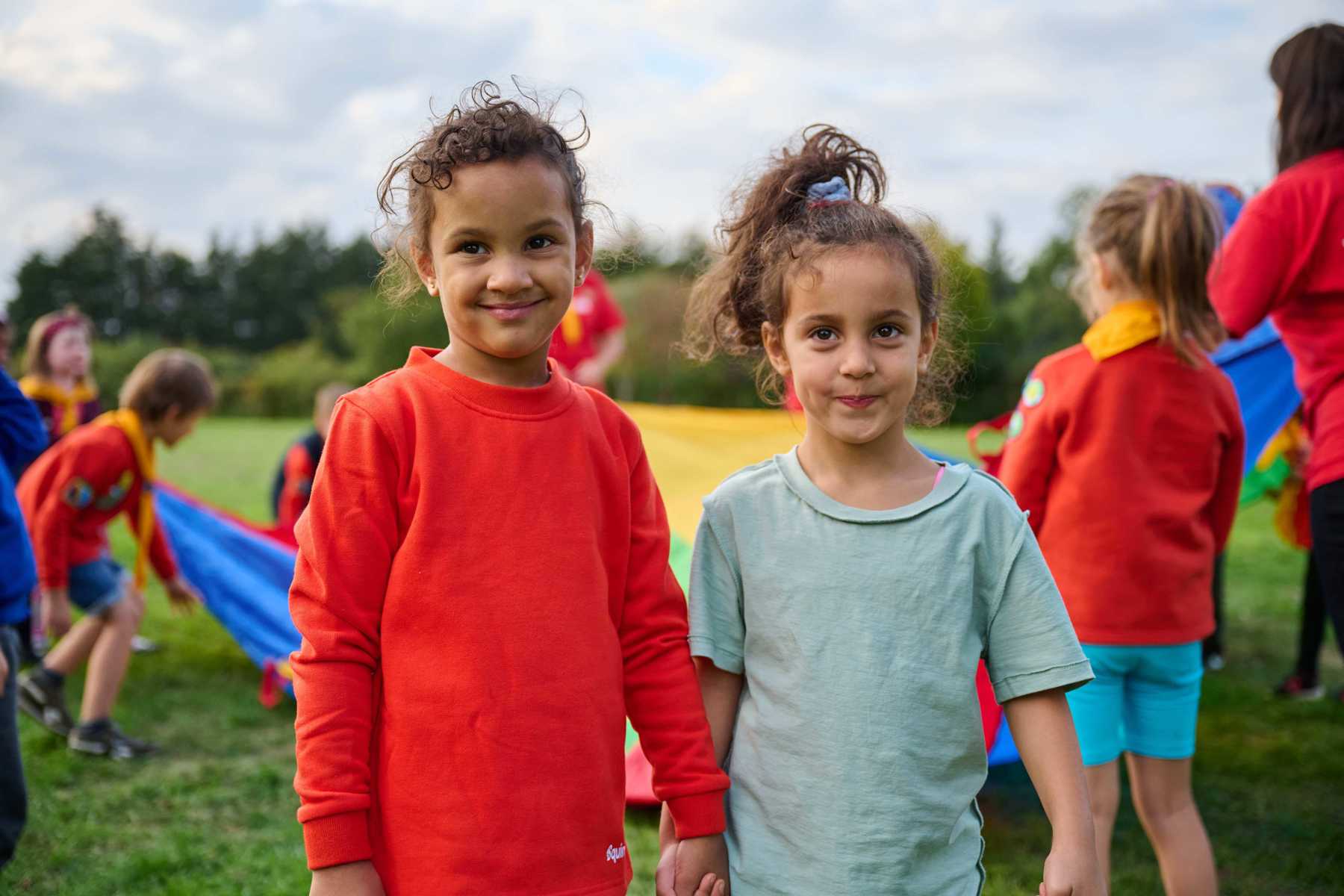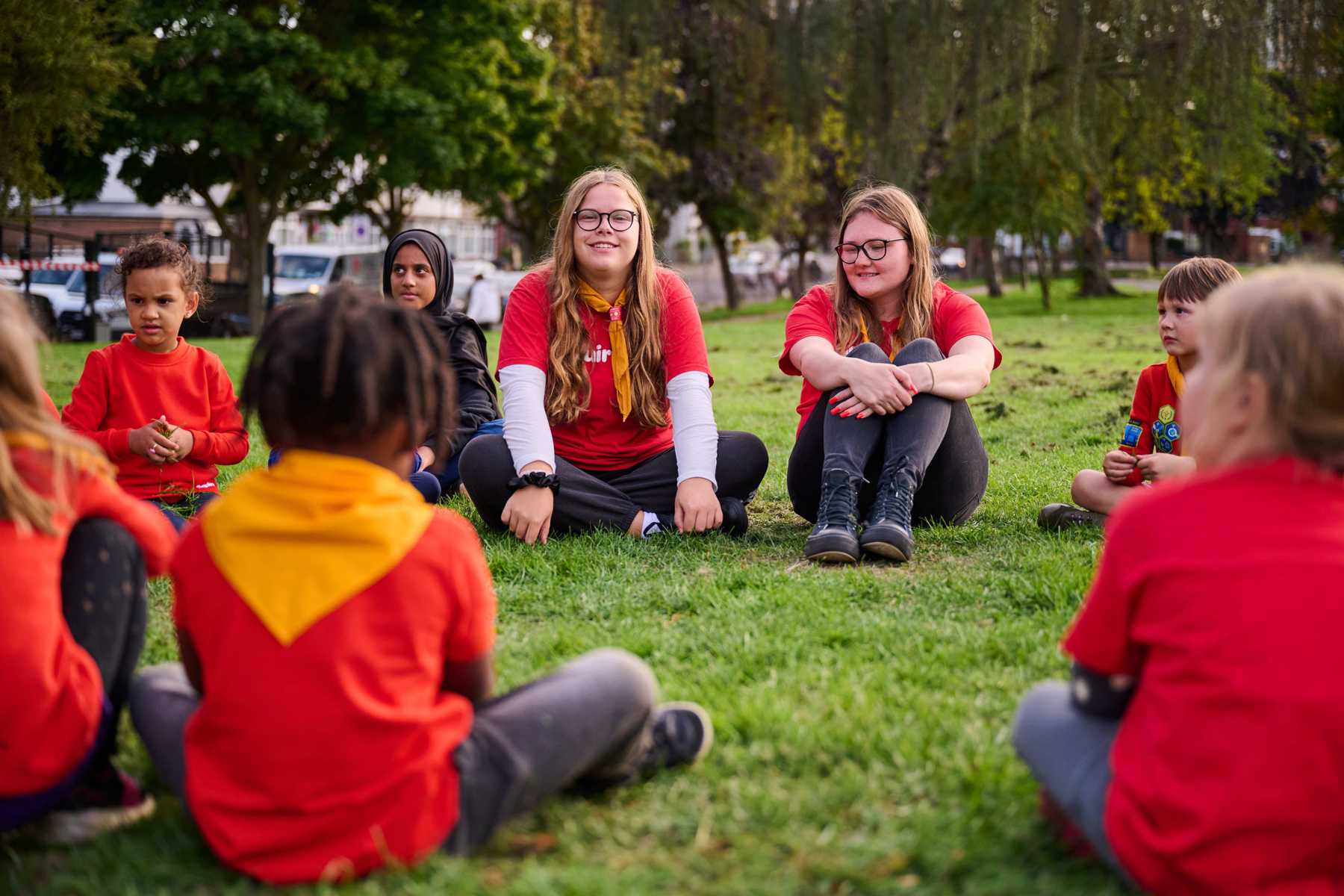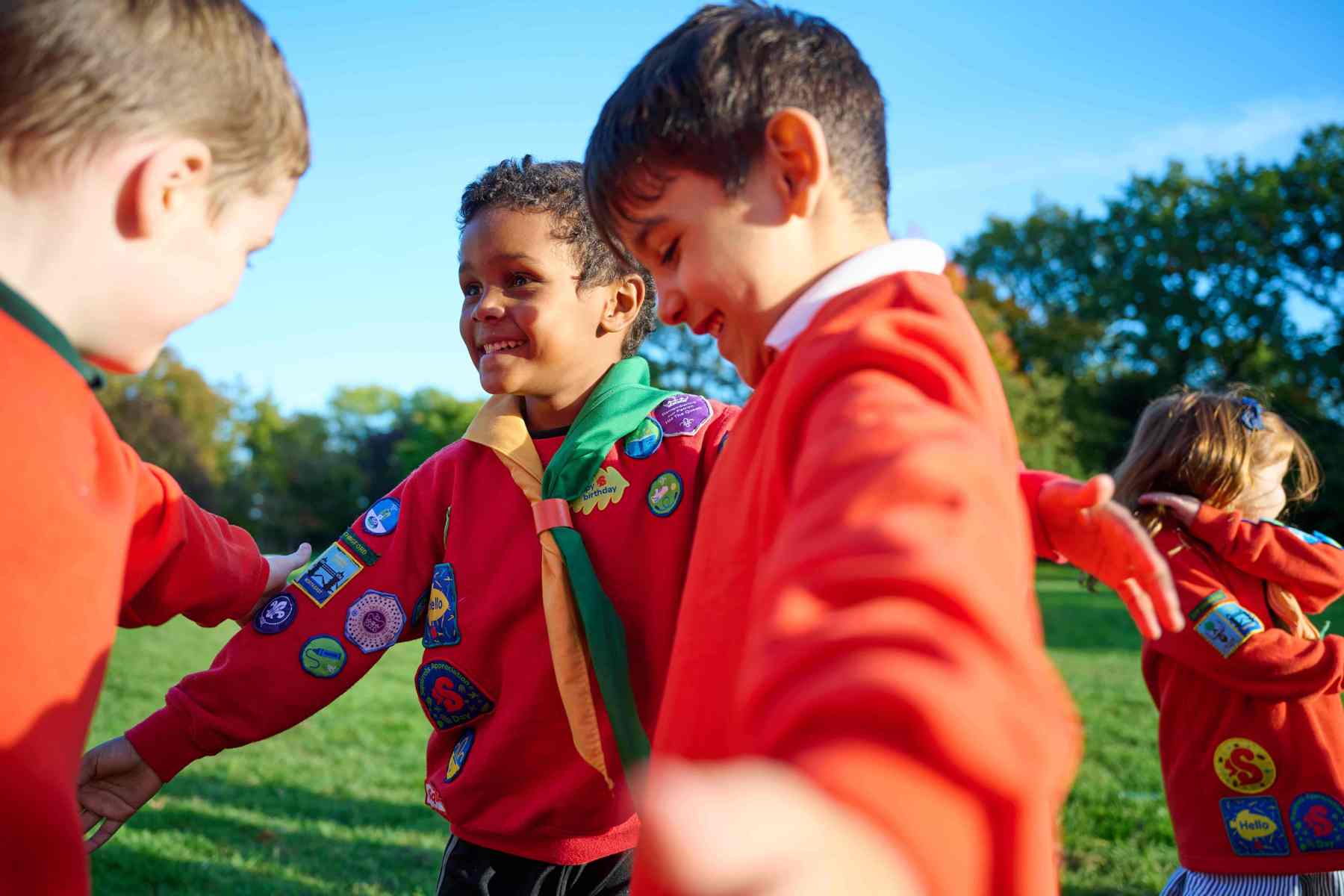How and why you should use parents and carers at Scouts
Parents and carers are an incredible resource. Here, we will explore the benefits that parent and carer helpers offer your group, and share some of our top tips on welcoming and engaging them into Scouts.
Whether they’re aware or not, parents and carers are the first and most influential teacher in their child’s life. They’re truly instrumental in early years’ development.
They can bring so much enthusiasm, ideas and creativity to your group, becoming a valuable team member long-term.

The power of parents and carers
Whether it’s reading a story, giving out drinks, running a game or offering support to those who need it most, there’s lots of ways parent and carer volunteers could offer extra support when needed during the session.
Even once or twice a term, the extra helper can make all the difference. They may allow you to run the map reading session in smaller groups or have the ratios covered to go to the local park.
It’s not just weekly in-person meetings that the power of parents and carers can be utilised. They might be able to help at home doing the accounts or social media. Or they could use their skills to run a football or dance session or cook breakfast on camp. They might even opt to drive the minibus.
Just by having a chat and offering a friendly smile, you may be able to find out where their experience lies, as well as understanding their skillsets that you could use within a session.
The benefits of parents and carers
Despite a common misconception that a young person may be held back in socialising with others or may be more shy with their parent or carer at a session, research we recently ran with the Centre for Research in Early Childhood (CREC) suggested that as the weeks go by, young people show more independence if their parents or carers come along.
Some young people may just lack the confidence to begin with, so just having their parent or carer at a session may be the support they need to engage fully in their journey with Scouts.
They may already know some of their child’s friends in the section, too. They may already be a familiar face from the school playground. This experience can be invaluable, a parent or carer being there can make the first session a bit less scary. It helps to tackle any first day nerves when someone already knows them as somebody else’s mum, dad, or grandma.
Most importantly, they’re familiar in the needs of their child, which means they’re likely going to be in tune with the needs of the other young people.
This might mean they’re good at spotting when someone’s upset or feeling lonely, or they may know what to say to help camp homesickness as their own child had felt the same way.
Or, equally, if their young person tells them they want a snack, it might mean snack time for the full group!

Why parents and carers should volunteer for Scouts
There are so many benefits for parents and carers in Scouts, too.
Not only are they able to build stronger relationships with their children by spending quality time together, but they’ll also get another insight into their child’s life.
They’ll see how their child socialises and how they learn best.
A parent or carer who understands how their child learns will have a far better idea on how they can support them at home. Scouts gives them the opportunity to find out about how their child picks up new skills in a way that they may not have through school.
We recently interviewed parents and carer helpers as part of our research with CREC.
It was clear that some of the new volunteers had boosted their confidence so much that they were able to lead a session after just a few months.
Others had also found new jobs because of their experience with Scouts, using the new skills they’d developed.
Finally, parents and carers are the best promoters of Scouts, especially for word of mouth. Their experiences will be heard by everyone that they talk to, which can often lead to the recruitment of new volunteers and young people.

Top tips for welcoming parents and carers into Scouts
- First things first, get to know them. Making time for a quick chat helps you to get to know parents and carers, while also letting them build up their confidence and trust in you. You can also find out how they could help you, by understanding their job, hobbies, interests or skillsets. These questions could lead to them helping run a session on their favourite sport or set up a group visit to a fire station.
- Make your parents and carers feel part of Scouts. Particularly for Squirrels, around 50% of the volunteers are parents or carers. More importantly, the majority are new to Scouts. It’s important to engage and show parents and carers in what Scouts do to get them involved and wanting to take part. You could do this by taking photos, welcoming people to stay and watch, or telling them what you’re doing each week.
- Bring people together. You could run a joint family session, have a family campfire, run a family community impact project, or have a big family event at the end of term to get everyone celebrating Scouts. It’s a great way to bring people in and let them have fun.
- Know the impact. If we can make them feel welcome, engaged parents and carers should have positive impact for other sections in a Group. Parents and carers may end up moving their volunteer role with their child, backfilling any gaps in the volunteer numbers in older sections.
- Directly ask your parents and carers if they want to be involved. Our recent research with CREC showed 57% of parents and carers had never been asked whether they wanted to volunteer. 12% said they would be interested. Sometimes keeping it simple is the best way. You could send out a letter home or set up a parent and carer rota and see who says yes.
- Ask for specific skills and roles you need. Parents and carers might be more engaged if they know you need an accountant, a camp chef, someone to run a football session or a helper on trip, as well how much time each role will take. It makes it less daunting; they know they’ve the required skills and may feel more comfortable taking the first step.
- Show a range of activities. People may be a bit worried that they don’t know how to put a tent up, but that’s not everything we do in Scouts. Remember to tell everyone about the arts and crafts, games, science and baking you do, alongside key camp and outdoor skills, such as campfires and tying knots. There’s something for everyone!
- Be flexible and move slowly. Always take time to find out a new volunteer’s strengths and their confidence level. It's important to be flexible and let them go at their own pace. You could offer for them to stay and watch for a few sessions, before asking whether they’d like to lead a short game or give out badges. Never put pressure on anyone or make them do something they don’t feel comfortable with.
- Promote ways people can help from home. Parents and carers could manage accounts, take up some of the administration, or even help with session planning. Make it clear that they’ve the chance to developing new skills, too. They’ll develop teamwork, communication, problem-solving and leadership skills, as well as confidence, all of which are great additions to a CV.
- Keep it safe. Make sure you understand how the type or frequency of volunteering would make it essential for a parent helper to have to get a criminal records check, by looking at 16.7.2.2 of POR. Be up front about what vetting and a criminal records check will involve.
It's clear that parent and carer helpers are an incredible resource that we should be using and making the most of in Scouts.
If you’re looking to include more parents and carers in your group, look at our Growing Scouts resources for helpful guidance and advice.